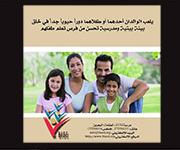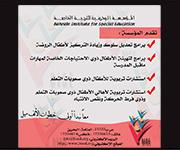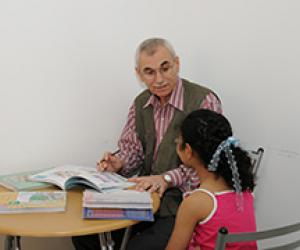Dyslexia Cards



|
|
Speech and Language Disorders A speech disorder refers to a problem with the actual production of sounds, whereas a language disorder refers to a difficulty understanding or putting words together to communicate ideas. Speech disorders include: - Articulation disorders: difficulties producing sounds in syllables or saying words incorrectly to the point that listeners can't understand what's being said.
- Fluency disorders: problems such as stuttering, in which the flow of speech is interrupted by abnormal stoppages, repetitions (st-st-stuttering), or prolonging sounds and syllables (ssssstuttering).
- Resonance or voice disorders: problems with the pitch, volume, or quality of the voice that distract listeners from what's being said. These types of disorders may also cause pain or discomfort for a child when speaking.
- Dysphagia/oral feeding disorders: these include difficulties with drooling, eating, and swallowing.
Language disorders can be either receptive or expressive: - Receptive disorders: difficulties understanding or processing language.
- Expressive disorders: difficulty putting words together, limited vocabulary, or inability to use language in a socially appropriate way.
Specialists in Speech-Language Therapy Speech-language pathologists (SLPs), often informally known as speech therapists, are professionals educated in the study of human communication, its development, and its disorders. They hold at least a master's degree and state certification/licensure in the field, and a certificate of clinical competency from the American Speech-Language-Hearing Association (ASHA). SLPs assess speech, language, cognitive-communication, and oral/feeding/swallowing skills to identify types of communication problems (articulation; fluency; voice; receptive and expressive language disorders, etc.) and the best way to treat them. Remediation In speech-language therapy, an SLP will work with a child one-on-one, in a small group, or directly in a classroom to overcome difficulties involved with a specific disorder. Therapists use a variety of strategies, including: - Language intervention activities: The SLP will interact with a child by playing and talking, using pictures, books, objects, or ongoing events to stimulate language development. The therapist may also model correct pronunciation and use repetition exercises to build speech and language skills.
- Articulation therapy: Articulation, or sound production, exercises involve having the therapist model correct sounds and syllables for a child, often during play activities. The level of play is age-appropriate and related to the child's specific needs. The SLP will physically show the child how to make certain sounds, such as the "r" sound, and may demonstrate how to move the tongue to produce specific sounds.
- Oral-motor/feeding and swallowing therapy: The SLP will use a variety of oral exercises — including facial massage and various tongue, lip, and jaw exercises — to strengthen the muscles of the mouth. The SLP also may work with different food textures and temperatures to increase a child's oral awareness during eating and swallowing.
Sited from http://kidshealth.org/parent/system/ill/speech_therapy.html Language is different from speech. Language is made up of socially shared rules that include the following: - What words mean (e.g., "star" can refer to a bright object in the night sky or a celebrity)
- How to make new words (e.g., friend, friendly, unfriendly)
- How to put words together (e.g., "Peg walked to the new store" rather than "Peg walk store new")
- What word combinations are best in what situations ("Would you mind moving your foot?" could quickly change to "Get off my foot, please!" if the first request did not produce results)
Speech is the verbal means of communicating. Speech consists of the following: Articulation How speech sounds are made (e.g., children must learn how to produce the "r" sound in order to say "rabbit" instead of "wabbit"). Voice Use of the vocal folds and breathing to produce sound (e.g., the voice can be abused from overuse or misuse and can lead to hoarseness or loss of voice). Fluency The rhythm of speech (e.g., hesitations or stuttering can affect fluency). When a person has trouble understanding others (receptive language), or sharing thoughts, ideas, and feelings completely (expressive language), then he or she has a language disorder. When a person is unable to produce speech sounds correctly or fluently, or has problems with his or her voice, then he or she has a speech disorder. In our example, Tommy has a speech disorder that makes him hard to understand. If his lips, tongue, and mouth are not moved at the right time, then what he says will not sound right. Children who stutter, and people whose voices sound hoarse or nasal have speech problems as well. Jane has a receptive and expressive language disorder . She does not have a good understanding of the meaning of words and how and when to use them. Because of this, she has trouble following directions and speaking in long sentences. Many others, including adults withaphasia and children with learning disabilities, have language problems. Language and speech disorders can exist together or by themselves. The problem can be mild or severe. Sited from ASHA - See more at: http://www.asha.org/public/speech/development/language_speech/#sthash.y6Kpd4yT.dpuf What is a Speech Pathologist?A speech pathologist has been trained to assess and treat people who have a communication disability.
Speech pathologists complete a degree at university which encompasses all aspects of communication including speech, writing, reading, signs, symbols and gestures. Speech pathologists also work with people who have difficulties swallowing food and drink. Speech pathologists or speech-language pathologists were formerly known as speech therapists. They are different from speech and drama teachers. Why do we need speech pathologists?
Communication – the process of being able to understand and to be understood – is something most of us take for granted. Communication disabilities are the result of problems with speech, using and understanding language, voice, fluency, hearing, or reading and writing.
One in seven Australians has some form of communication disability. This means that one in seven people has a problem understanding other people or being understood by people.
Where do speech pathologists work?
Speech pathologists work in a variety of settings, including: - kindergartens, primary and secondary schools
- nursing homes
- hospitals
- universities
- rehabilitation services
- mental health services
- community health centres
- private practice
- specialist services for those with complex communication needs, arising from disorders such as autism, cerebral palsy and intellectual disability.
Who do speech pathologists work with?
A speech pathologist’s workload might include: - giving advice on feeding to a mother who has a baby with a cleft palate
- working in a child care centre with a group of children who are hard to understand
- working with a school child who can’t understand what his teacher says
- working with a high school student who stutters
- training a teacher who constantly loses her voice to use it more effectively
- rehabilitating a young man who has severe brain injury due to a motorcycle accident
- liaising with the carers of an elderly man, who has dementia
- helping a woman who has had a stroke to regain her communication skills, advising her husband and family
- providing education for teachers, doctors or parents
- providing communication strategies for a person with intellectual disability
- treating a person who has swallowing problems following a stroke
- assisting children and adults who are learning to read
How do speech pathologists work?
Speech pathologists work in a variety of ways including providing individual therapy, working in small groups, working within a classroom, becoming involved in home-based programs, providing resources and information, as well giving advice and direction to clients, their carers and other professionals.
They coordinate the management of clients, work as part of a multi disciplinary team, consult with other agencies, provide workshops and support family members and other caregivers. A speech pathologist is an important member of an early intervention team, an aged care services team and a school therapy team.
The role of speech pathologists is to advocate strongly for appropriate care and services for people with communication disabilities. Sited from Speech Pathology Australia http://www.speechpathologyaustralia.org.au/about-spa
|













